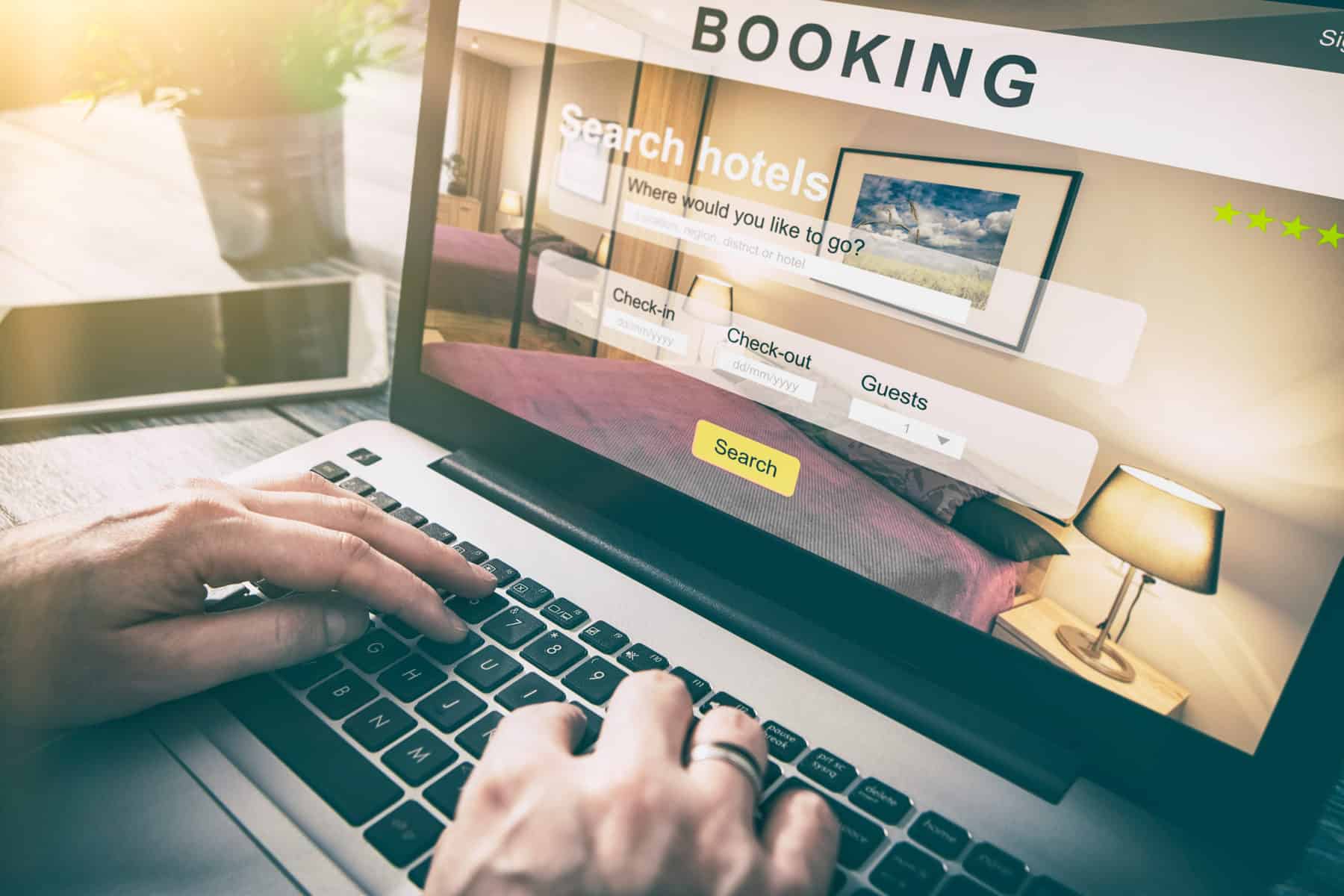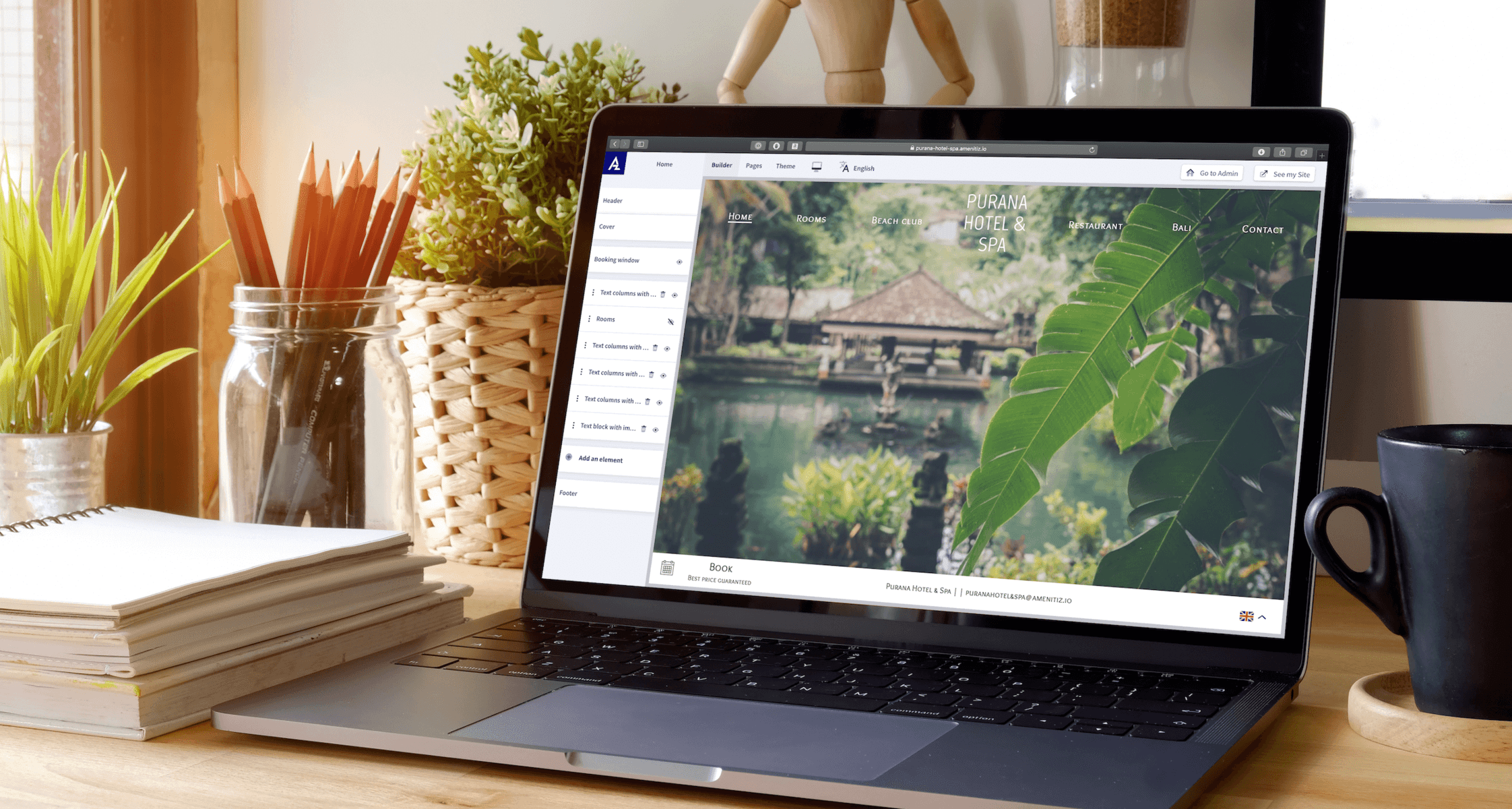
Those with a natural flair for hospitality must understandably feel somewhat miffed that the power of this gift has been buried recently in the brave new online world, where competition is won by those who can best master the online techniques for salesmanship.
The Competition and Markets Authority famously began its investigation into the practices of online travel agents in the last quarter of 2017. It took its last piece of evidence mid-December, but it will be a while before it draws any conclusions or announces any new regulatory rules restricting alleged anti-competitive practices by OTAs.
But even if the OTAs have their wings clipped by the authorities, any new rules won’t change the overall landscape by much: a high proportion of luxury bed & breakfast operations will continue to rely on OTAs for a significant amount of their business, which will help their top line but at great cost.
Eviivo director Ruth Whitehead says there are still many challenges facing luxury bed & breakfast and independent boutique hotel owners when it comes to online booking.
One of the biggest challenges she says is advertising available rooms on multiple online travel agency websites easily while keeping all the availability and pricing information both up to date and accurate.
It may of course turn out that the Competition and Markets Authority is able to formulate a recommendation that facilitates this by coming down hard on OTAs for presenting the browsing public with the fictional view of the market, with rankings at a level corresponds to the amount the business is paying, but this remains to be seen.
Whitehead tells Luxury Bed & Breakfast magazine: “Eviivo’s ‘my channel’ manager enables businesses to appear on a vast number of channels including Expedia, Laterooms, Google Hotel Ads, Ryanair Rooms and Booking.com, in one click. Changes and updates can be easily coordinated through the application, with all pricing and availability updated in realtime, and any content and photo edits can be done through single amends in the Eviivo suite then applied across all the OTAs, without the need to update each and every OTA’s extranet separately.”
This entails taking payment and deposits from online bookers, and ensuring cards used are genuine, while all the time remaining PCI compliant, she says.
“Eviivo’s ‘my payment’ manager enables businesses to set the terms of their payment and cancellation policies in whatever way they want to, and apply this to their listing on the online travel agencies too. Card payments are pre-authorised to ensure cards are genuine, and the Eviivo suite tools can be used to take balance payments.”
The use of tablets and mobiles to search and book accommodation has become the default way in which members of the public search for accommodation, so a business’s website needs to be fully mobile responsive to ensure its potential guests can easily access it and make a booking when they are on the go, she says.
The Eviivo ‘my website’ is mobile responsive, and template designs are available free of charge, she says. “We advocate owners spend their marketing budget on professional photography, rather than a flashy, fancy website. A website needs to provide key functions which our template designs do, and host and showcase great images. Good images are crucial when helping to secure a booking,” she stresses.
The level to which the Eviivo online booking service is able to drive up direct bookings is significant. The ‘billboard effect’ means that having a property listed on the major travel websites generates views for its own website too: around 30% of people who look at a property on an OTA site will look at the property’s own website and Eviivo helps convert those views into direct bookings, according to Whitehead. “Our figures show that generally, a typical independent hotel or B&B without online booking on its own website will get 80% of its bookings from travel websites and 20% direct, by phone and email. By adding a prominent booking button, that B&B can increase its direct bookings by 50%, changing the source of bookings to be 70% from travel sites and 30% direct,” she says.
There is such a vast amount of disjointed advice and opinion available on the online booking arena that luxury bed & breakfast owners new to the business, or those looking at setting up a booking system for the first time, are often confused about the best way to approach the whole issue. Whitehead offers a list of five key factors to take into consideration:
- Ensure it enables you to remain in control and sell your rooms your way, with your own deposit and cancellation policies applied to all your listings on the online travel agencies.
- Ensure it enables you to take payments at a PCI compliant level – your guests will be expecting this too.
- Ensure is enables your guests to make a booking easily, in just a few clicks and on mobile devices.
- Ensure it enables you to easily showcase great images of your property through your own website and on online travel agency sites easily.
- Ensure it enables you to opt in and out of which online travel agencies you use very easily, and update pictures and text on them through just one interface.
Many remote rural properties are still unable to get access to adequate broadband, which can make much of the arguments over online booking seem redundant. However, by 2020 high speed broadband access will become a legal right across the UK. Furthermore there are a growing number of companies now supplying radio w ave internet coverage where broadband connection remains an issue, and if a bed & breakfast is finding it too much of a struggle to persuade various authorities to facilitate sufficient bandwidth in the property then it is worth looking for a radio wave option.
Whitehead says: “The Eviivo suite is very light and efficient in terms of what it needs to run effectively.
IT companies such as Eviivo are continuously rolling out new technology and software to keep B&Bs at the cutting edge, while at the same time making it easier for owners to manage their property. “We recently released full two way connection with Airbnb, including rates, availability, bookings and content. We’ve also released a full connection with Google which allows B&B’s to not only take a top position and control how their property displays on Google Hotel Ads, but also have the cancellation and deposit polices they want,” she says.
Eviivo provides online booking for luxury bed & breakfast operations as well as a wealth of other accommodation providers, from the simplest city apartment to the grandest country house. Whitehead says: “Not all of these are in the official rating schemes, but we certainly have hundreds of luxury properties. We are award-winning, including Edgar House, named the Number 1 small hotel in the World in the TripAdvisor Travellers’ Choice Awards 2016, the most Romantic Hotel in Europe 2017, and Number 2 in the World for Romance 2017. We also have lots of properties like Abbots Grange (which was recently featured on Country Living’s website), Darsham Old Hall and Old Downton Lodge, a 3 AA Rosette restaurant with rooms and the Good Hotel Guide Editor’s Choice Award winner 2016.”
A more complete selection of Eviivo’s grandest historic properties can be found online here: www.toprooms.com/en-GB/c/StayInThePast
Conversion rate optimization
Adam Hamadache heads up Direct Hotel Marketing. He tells Luxury Bed & Breakfast magazine: “From a broad technology perspective, conversion rate optimization or CRO is probably the most technical aspect of marketing that we do that cannot realistically be implemented by the B&B owner although there are some very quick solutions any business owner can implement.
“For us CRO is a 15-point checklist using some of the most technical facilities available on the internet. For example, split testing home pages, with 500 seeing one page and 500 seeing another and testing which converts best. For the luxury B&B owner looking all the time for ways to encourage more people to come to them booking direct, Google Remarketing. Simply put it is the most cost-effective form of advertising anywhere in the internet.”
If you go to an OTA, take a look at a couple of luxury bed & breakfast operations but don’t book then a couple of days later the OTA seems to follow you round the internet with their ads, advertising the same B&B that you looked at. These ads are examples of Google Remarketing.
Hamadache says: “The most amazing thing about Google Remarketing is that we use it a great deal within our hotel and with the other properties we work with and yet I have never spent more than £25 in a month on this form of advertising. For that investment I get somewhere between 25,000 and 30,000 impressions of my ad. I will also be able to advertise on huge websites. I’ve seen my own hotel advertised as a huge banner ad on the home page of the Daily Telegraph and the mailonline.”
Most people don’t know how it works, he says. “We have had people come up to us saying that we must be spending a fortune on online advertising because of a big ad they have seen. But the reality is we don’t pay for that, we only pay for a click. Impressions are totally free. When somebody does click it is going to cost 20-30 pence.”
He explains the process: “You are dropping a cookie on their browser using the Google display network to advertise your product as people visit random websites. The reason this is so important for every accommodation business is that it is as cheap as chips. You’ll never spend more than £20-25 on this per month. Most people particularly at the luxury end of the market, where perhaps it is more of a considered purchase, people tend to take longer to make their booking decision. If you can get people to your website, and they don’t book for whatever reason, and then you are following them around saying, “Book with us always direct for the best rates”, that has a profound impact on the amount of business you can get direct. This is the sort of thing we share as a company that is not common knowledge but is actually relatively straightforward to implement when you know how.”
As regards the Competition and Markets Authority’s ongoing investigation into the way in which the OTAs are not being fair in the way in which they are behaving, he says: “We have known about this for years: give them a few more percent they will push you up the ranks because they make more money. Hopefully they will get more than a slapped wrist. To the independent operator google remarketing isn’t going to make a world of difference but perhaps an extra hundred direct bookings per year, which all adds up.
“We can show how to set it up although obviously I’m in the business of doing it for them. I would suggest giving us a call. It would take us an hour but for someone who doesn’t really know what they are doing it’d probably take them a week to do. Furthermore, even though I will have explained exactly how to set it up and they will still probably make mistakes. All you need to know what to do is to create an ad, put in a certain amount of technical data and a bit of code on the website. Then normally within 14 days you’ll start to see the ads starting to trigger business. And if we set it up we will normally give you the first £100 of advertising for free.”
Hamadache says he is not too fussed about giving away trade secrets and has written a book that explains exactly how to go about doing it (see page 22). “I’m in the business of doing it for people. If they want to do it themselves they can, but there is a high chance that they will mess it up, just like we messed it up several times before we got it right.
“If you are prepared to pay for it then work with us and we’ll do it for you and you know it is going to be set up correctly.
“Every month they provide a report to all their clients detailing how much was spent and how many impressions we got. Last month we got 65,000 impressions that cost us about £20.”
Keeping bad reviews offline
The other technological aspect Hamadache is focused on pushing is Review filter, which keeps bad reviews off TripAdvisor.
He explains: “For under £50 a month this piece of software pushes good reviews at TripAdvisor and makes sure than bad reviews never see the light of day so that you can handle them yourself. For B&Bs perhaps more than hotels, negative reviews are highly damaging and at times can be very unjust as well.
“There is nothing more frustrating when you are trying your best and you ask if everything is okay and they say everything is fine and then you get this horrible, scathing one-star review, when of course you can’t do anything about it.”
As a hotel owner himself, five years ago he started using this review filter tool that was in fact developed by a hotelier, he says.
He comprehensively dismisses the question about the ethical legitimacy of this tool that, as he puts it, stops bad reviews “seeing the light of day”. There are of course examples of consumers writing perfectly legitimate one-star reviews to warn other consumers of the experience they may have had. But he says: “We are coming at this from two different angles: the operator’s perspective and the customer’s perspective. I wear both hats, having a hotel and being a regular hotel guest.”
He explains, “The system works by asking the customers for their review first of all. We automate an email to the guest within a few hours after checkout asking for feedback. They can leave a one- to five-star review. If it is a four- or five-star review it ends up on a page where within two clicks the customer can paste that review to TripAdvisor. Therefore we are helping good reviews along the way to site-fight TripAdvisor.”
If a review is negative it ends up on a different page saying somebody will be in touch shortly, he says. “At that point if you have gone through that process and created a one-star review and you are particularly aggrieved by your experience and want to share the fact that it was a one-star review then there is nothing stopping you the customer going to TripAdvisor and writing that out again and posting that review. So while we say it keeps the bad reviews off trip advisor, we actually mean it discourages bad reviews from ending up on the review site.”
He cannot praise the application enough. “We love this particular tool. We can’t control everything: if people are really motivated to slate our product on the internet then there is nothing to stop them, but it is not a distortion of the guests’ true experience.
“We also tend to find that on the occasion when we do have a one or two star review coming in, if they leave that at midday and by 3-4pm someone at the guest hose has called them, apologised profusely, resolved the incident and invited them back for a 50% off stay next time, the end result is that the customer is happy, the accommodation provider is very apologetic and a resolution has been found which means that one star review probably doesn’t need to be on the internet discouraging others.”



